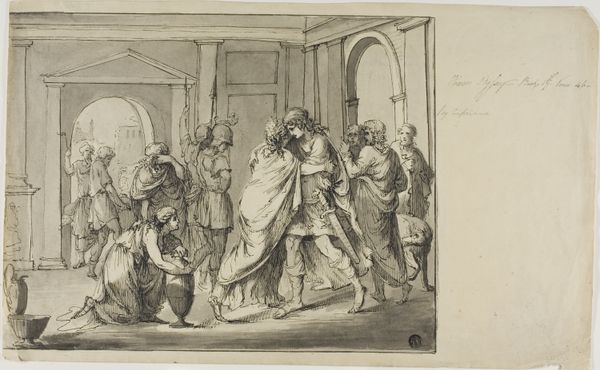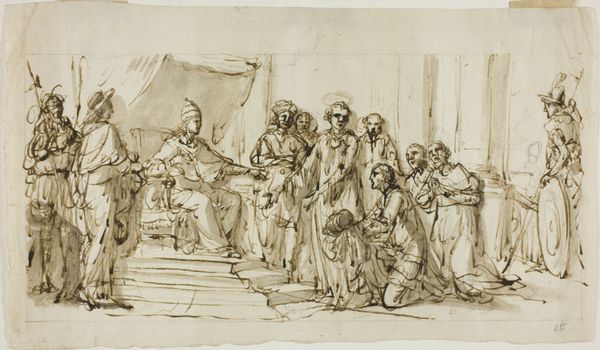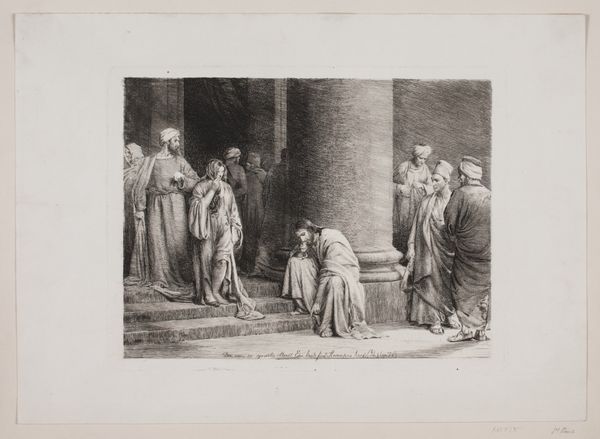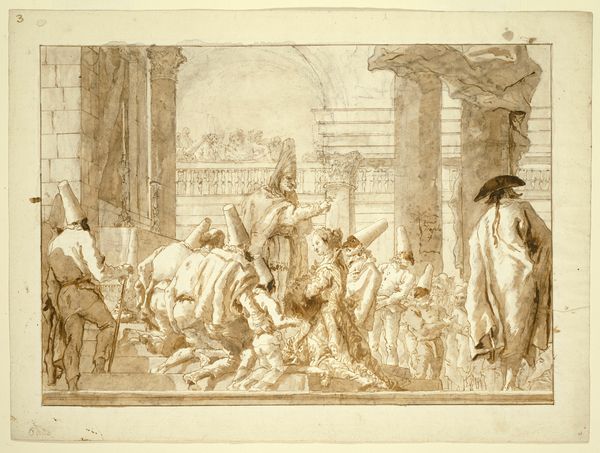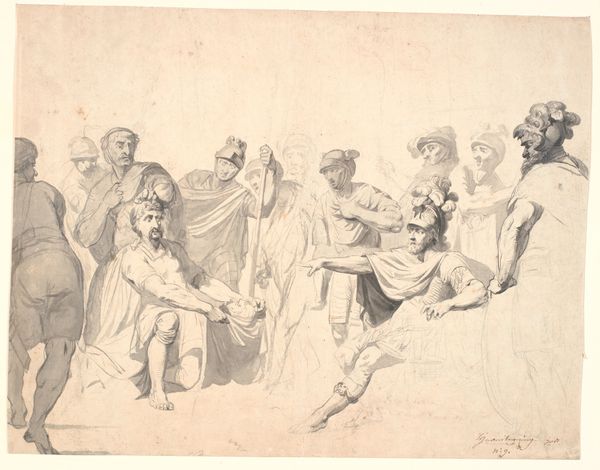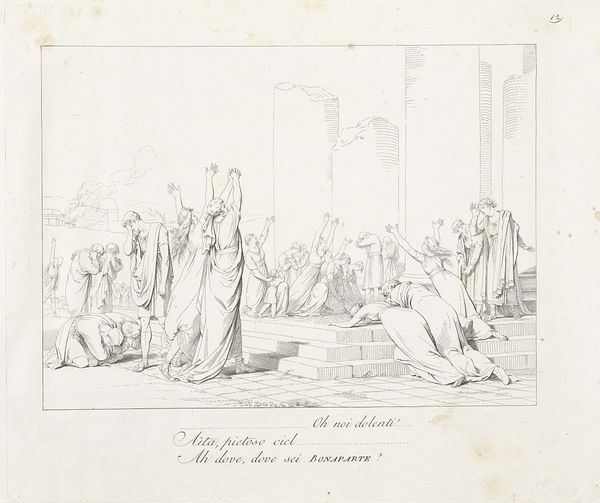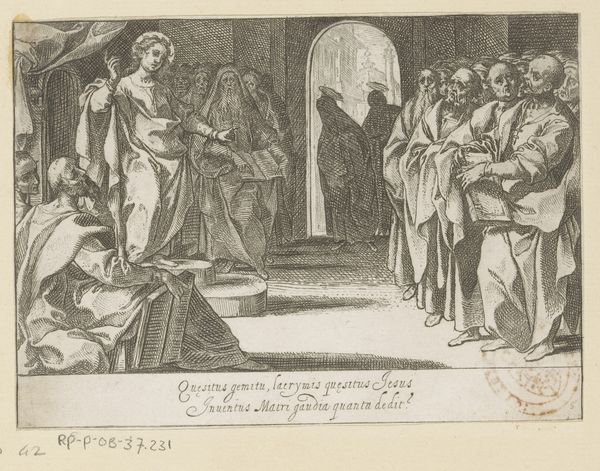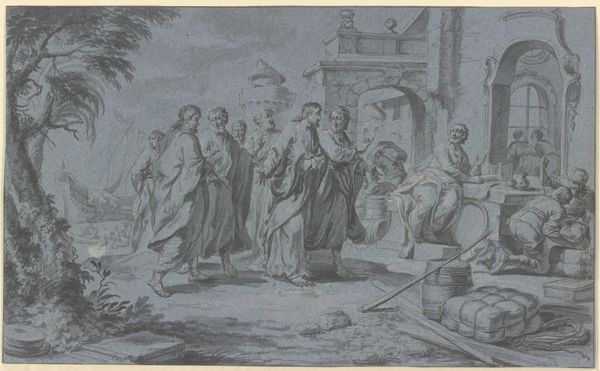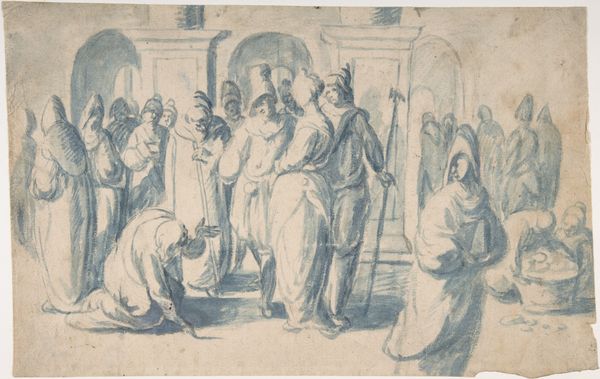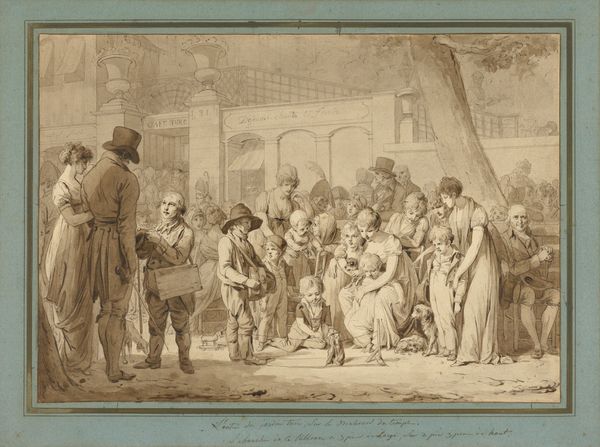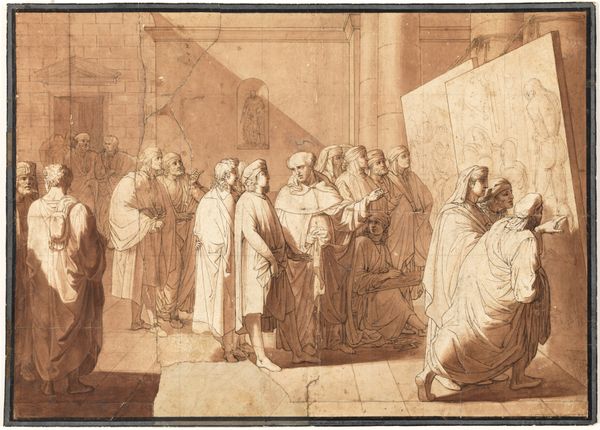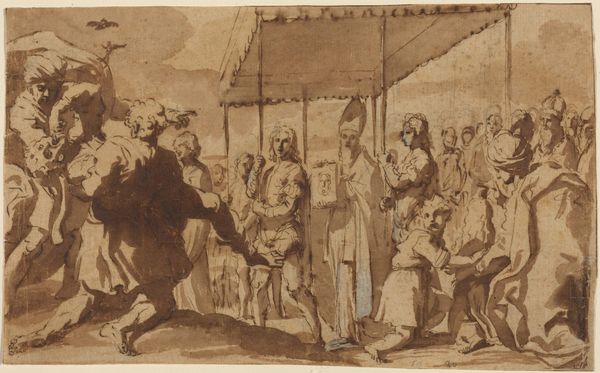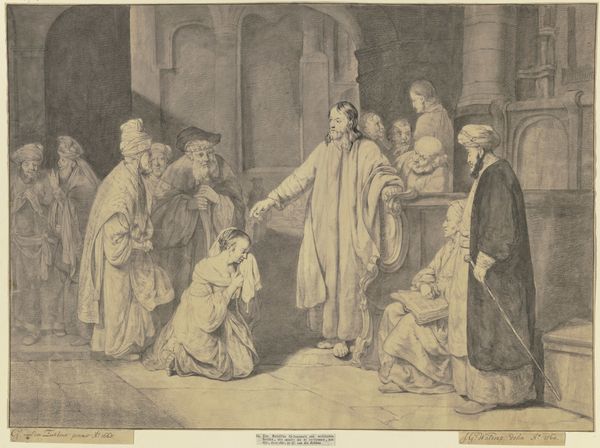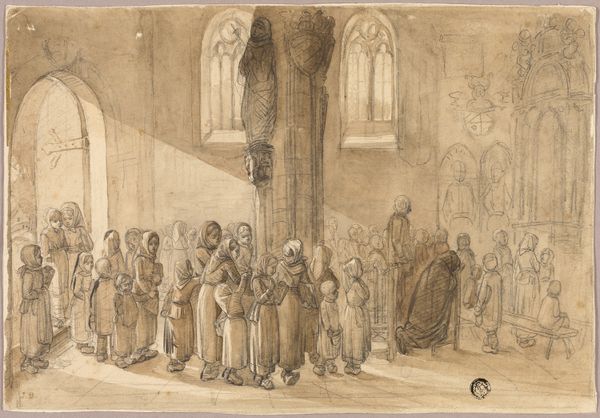
Christ and the Woman Taken in Adultery 1650 - 1674
0:00
0:00
drawing, print, paper, ink, pen
#
drawing
#
baroque
# print
#
figuration
#
paper
#
ink
#
pen
#
genre-painting
#
history-painting
Dimensions: 145 × 197 mm
Copyright: Public Domain
Gerbrand van den Eeckhout rendered "Christ and the Woman Taken in Adultery" with pen and brown ink in the Netherlands, sometime in the mid-17th century. It depicts a biblical scene where Jesus is confronted with a woman accused of adultery. The image creates meaning through its dramatic composition. Jesus stands prominently, challenging the accusers, who are depicted with stern faces. The woman is shown kneeling, vulnerable and ashamed. The architecture of the temple looms in the background, underscoring the institutional context of the scene. In 17th-century Dutch society, religious and moral questions were hotly debated, and this artwork reflects these tensions. Eeckhout's teacher was Rembrandt, and his influence is clear. The informal style seems to suggest a reading of the Bible that emphasizes individual conscience over the dogmatic rules of religious institutions. Understanding this artwork requires considering the complex religious and social landscape of the Dutch Golden Age, which can be achieved through careful archival research. The meaning of art is contingent on its social and institutional context.
Comments
No comments
Be the first to comment and join the conversation on the ultimate creative platform.
